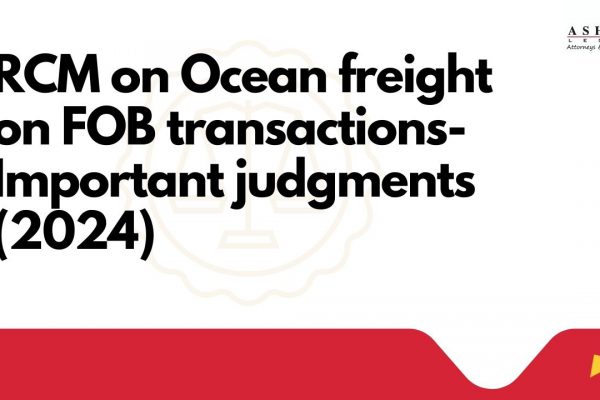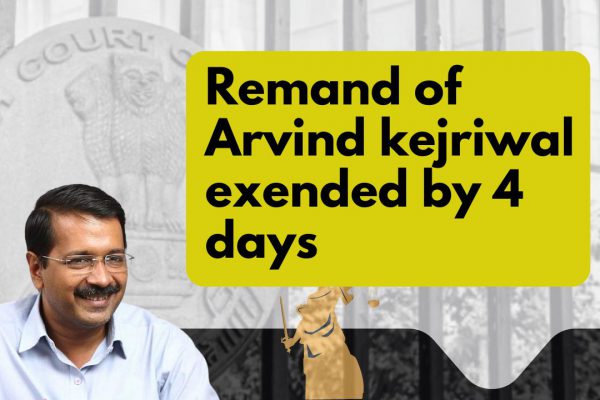Importance of distinct person in GST
How Distinct person in GST will change the way we look at a business entity:
In all the central indirect taxes we pay a business entity is seen as consolidated. Untill the introduction of GST the taxable events were different activities. Which tax you need to pay was dependent on your business activity. But now this scenario will change. No matter what is your activity the tax will be GST only. Now state and center both will charge tax on every activity in a particular state.Section 10 of GST model law provide for the term distinct person.In GST we will have to change this outlook in synchronization with their treatment in GST model Law. For GST every registered unit in a state is different form the other unit in other state. Any supply from one distinct person to other will be a supply even without consideration.
From registration to monthly and annual returns everything will be separate from each other. Even their pool of taxes will be statewise. No transfer of input tax credit or output tax liability will be possible. Even accounts or records will also be maintained separately. There is requirement of audit in GST. This audit will also be the statewise. Every state having turnover of more than Rs. 1 crore is liable for audit.
Impact of Distinct person in GST:
Here we will analyse the various provisions related to the distinct person in GST. How they will be treated under various provisions of GST.
Taxability of distinct person in GST
Section 10 of GST model law provide that
(1) Taxable Person means a person who is registered or liable to be registered under Schedule V of this Act.
(2) A person who has obtained or is required to obtain more than one registration, whether in one State or more than one State, shall, in respect of each such registration, be treated as distinct persons for the purposes of this Act.
(3) An establishment of a person who has obtained or is required to obtain registration in a State, and any of his other establishments in another State shall be treated as establishments of distinct persons for the purposes of this Act.
Every distinct person is liable to pay GST and will be treated as a separate taxable person.
For example: A company is engaged in manufacturing in tubes. It has its factory in Rajasthan and warehouses in UP, Delhi and Haryana.
As per the provisions of Schedule V a supplier is required to take registration in each state from where it is making a taxable supply. Now the A company will have to take registration in all four states. These registered entities will be the four separate taxable person for GST. They are distinct person for each other.
Registration of distinct person in GST
Schedule V of GST law provide that every supplier is required to take registration when his aggregate turnover crosses Rs. 20 lac (10lac for north east and hilly states). Aggregate turnover includes the turnover of a PAN all over India.
Now let us come to our example again. Distinct person will be charging tax on supplies to each other as they are distinct taxable persons. But for threshold of Rs.20 lac or 10 Lac as the case may be we need to see aggregate turnover of all entities under a single PAN. Once that threshold is crossed each place of supply will have to take registration in their respective states. When there is more than one place of supply in one state only one registration will be there. The other place will be entered as additional place of business in registration form.
Taxable value in case of distinct person in GST:
Section 15 of Model GST Law provide for the taxable value on which tax will be charged in GST. It provides that transaction value will be the taxable value when following two conditions are fulfilled:
- Supplier and recipient are not related to each other and
- Price is the sole consideration
In case of distinct persons they are distinct for chargeability. Now question is if they are deemed to be distinct for the purpose of valuation also. The definition of related person includes the instances where one person controls the other or both are controlled by any third person. For example a company having five branches in five states is actually controls all of them. For taxability they will be distinct person but they are related also.
Transaction between them will fall in exception and transaction value will not be the taxable value for them. They will have to refer to prescribed manner for every transaction they will have with each other.
Accounts and records for distinct person in GST:
Section 53 of Model GST law provide for account and records. Every registered taxpayer is required to keep accounts at each place of business.It is clear that every distinct person will have to keep the separate records for their place of business. Every taxable person is also required to get his accounts audited on crossing threshold limit. This provisions also indicate that every distinct person will have to go for audit in their respective states.
If you already have a premium membership, Sign In.
 CA Shafaly Girdharwal
CA Shafaly Girdharwal
CA
New Delhi, India
CA Shaifaly Girdharwal is a GST consultant, Author, Trainer and a famous You tuber. She has taken many seminars on various topics of GST. She is Partner at Ashu Dalmia & Associates and heading the Indirect Tax department. She has authored a book on GST published by Taxmann.


























